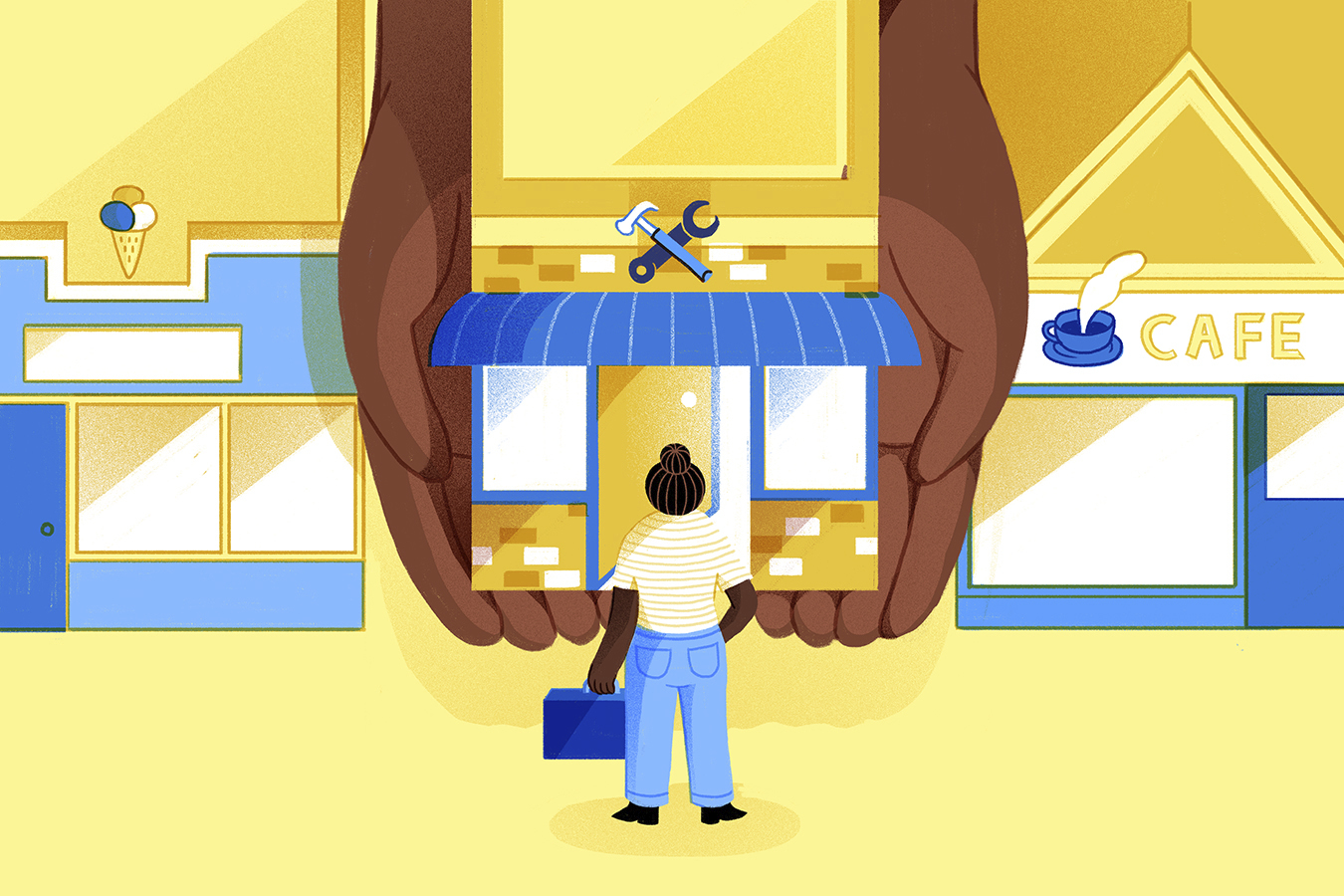8 Steps to Estate Planning for Investors
Published on May 2, 2019
minute read
Share:
Effectively managing money is part of everyday life, but it's also essential for achieving all kinds of goals. For example, long-term goals can include protecting your legacy and passing on your assets to loved ones as smoothly as possible.
Estate planning is an exercise that's both financial and emotional. We don't know exactly how everything will work out in the future, but one thing is certain: death has tax implications. To maximize the assets you pass on to your heirs and minimize the taxes your estate will owe, consider making a plan to help ensure your estate is distributed to your loved ones the way you choose.
Think beyond your will
For many people, "estate planning" means having a will. That's definitely the place to start, but there are a number of other steps you can take beyond that.
While a valid, up-to-date will helps ensure your estate is distributed to your beneficiaries according to your wishes, other considerations include:
- Naming powers of attorney for personal care and continuing powers of attorney for property (in Quebec, powers of attorney are mandates of incapacity) for every adult in your family
- Assessing how insurance coverage could reduce the impact of taxes on your estate
- Investigating how charitable donations can help a favourite cause and create tax benefits for your estate
- Assessing the need to establish “living trusts" to provide for your beneficiaries during your lifetime
Here are eight steps that can help you create an effective estate plan:
1. Start a conversation with your family.
For many, starting the conversation is the most difficult aspect of arranging their affairs. However, it's also the most important. The types of questions you should consider include:
- Does your family clearly understand your intentions and the reasons behind them?
- If you're naming a family member as executor (liquidator in Quebec) of your estate, is that family member ready to accept the responsibility?
- Who will you name as power of attorney for personal care and power of attorney for property? (In Quebec, these documents are called "mandates.")
- Who will care for your minor and/or dependent children, and who will manage their finances?
- Does your family and/or executor know where to find your will and other important documents?
- Do you have a good understanding of your financial picture? What are your assets and liabilities?
- If you own a business, what is the succession plan?
- Are your beneficiaries ready to manage the assets they may receive?
2. Discuss the executor's duties.
Serving as an executor can be an honour, but it can also be a lot of work. An executor's duties can include:
- Arranging the funeral
- Preparing an inventory of assets, including real estate, bank accounts, investments, life insurance, trusts, etc.
- Preparing an inventory of liabilities (e.g., mortgage, loans, credit card balances)
- Locating the will and notifying beneficiaries (in Quebec, submit a request for a will search to the Barreau du Québec and Chambre des notaires du Québec)
- Notifying financial institutions
- Applying for probate, if required
- Distributing assets to the estate's beneficiaries
- Making mortgage payments, paying insurance premiums, etc.
- Cancelling insurance, credit cards, utilities, government benefits (such as CPP), etc.
- Filing tax returns
- Keeping accurate financial records and tracking administration time
3. Provide for family members who need support.
You may wish to provide financial support to a family member or members without giving them direct control over assets. You might have a set amount of time in mind, or it could be indefinitely. Typically, this is done through a testamentary trust. This type of trust would generally come into existence on the day you die, under the terms established by your will. A testamentary trust might be appropriate to provide for:
- Minor children until they reach the age of majority
- Adult children who need to protect assets from creditors
- Family members with special needs who can't manage their own finances
4. Address second marriage situations.
Estate settlements can be complicated by second or subsequent marriages. If you have children from a previous marriage, you must specify what you wish them to inherit. If the entire estate goes to your current spouse, he or she will be free to name other beneficiaries. Asset distribution rules vary by province or territory. Consult a lawyer in your area about your individual situation.
5. Don't overlook sentimental attachments.
Once you start talking with family members about your estate, you may discover that certain assets have more emotional significance to some people than others. Resolving any potential conflicts now will help minimize stress and confusion during the settlement of your estate.

6. Consider the family business.
If you have a business and want to pass it on to family members, determine whether anyone has the interest and aptitude to run it. If so, consider involving them in the business as soon as possible to help prepare for the future.
You should also plan to protect the value of your business from potential taxes arising after your death. If cash is not readily available at that time, your heirs may have to sell or close down the business, or take on debt to keep it afloat.

7. Look at probate planning methods to pass on your wealth.
No matter what measures you take, there will be income tax implications for your estate. But there are ways to possibly reduce probate taxes and fees. Probate is a provincial court filing that validates your will and its executor (or executors). When probate is required, fees are usually based on the total value of the assets that flow through the will.
Here are some considerations:
- Family trusts: An inter-vivos family trust (also known as a "living trust") would allow you to transfer ownership of assets to one or more trustees for the benefit of your heirs while you are still living. Creating a trust might trigger a tax liability for you. Other types of trusts, such as alter-ego or joint partner trusts, allow you to transfer capital property on a tax-deferred rollover basis. Talk to your estate planning advisor about your specific needs.
- Joint tenancy with right of survivorship (JTWROS): Joint tenancy lets two or more people own an asset together. When one person dies, his or her ownership passes immediately to the other person (or people) and is not included as part of the estate. When assets are transferred into joint tenancy between spouses or common-law partners, there are no immediate tax implications. However, if the joint owners are not spouses or common-law partners, taxes can be triggered at the time the assets are made joint. There could also be tax implications on the death of each joint owner. Note: Quebec residents can't use a JTWROS agreement since an automatic right of survivorship does not exist under Quebec law. In Quebec, when joint ownership of property occurs, each co-owner's share is dealt with according to the directive in his or her will.
- Insurance products: Insurance benefits aren't included in probate if an individual is named as beneficiary. That means insurance benefits would be paid out quickly and wouldn't be subject to tax.
8. Designate beneficiaries.
Naming a beneficiary (or beneficiaries) on your registered accounts can help you pass on your wealth efficiently and help lessen the strain on loved ones. (Not available in Quebec.)
Even if you've already developed an estate plan, it's a good idea to review it regularly and whenever your circumstances – or any applicable laws – change.
The information provided in this article is for general purposes only and does not constitute personal financial advice. Please consult with your own professional advisor to discuss your specific financial and tax needs.
RBC Direct Investing Inc. and Royal Bank of Canada are separate corporate entities which are affiliated. RBC Direct Investing Inc. is a wholly owned subsidiary of Royal Bank of Canada and is a Member of the Investment Industry Regulatory Organization of Canada and the Canadian Investor Protection Fund. Royal Bank of Canada and certain of its issuers are related to RBC Direct Investing Inc. RBC Direct Investing Inc. does not provide investment advice or recommendations regarding the purchase or sale of any securities. Investors are responsible for their own investment decisions. RBC Direct Investing is a business name used by RBC Direct Investing Inc. ® / ™ Trademark(s) of Royal Bank of Canada. RBC and Royal Bank are registered trademarks of Royal Bank of Canada. Used under licence. © Royal Bank of Canada 2019. All rights reserved.
The views and opinions expressed in this publication are for your general interest and do not necessarily reflect the views and opinions of RBC Direct Investing. Furthermore, the products, services and securities referred to in this publication are only available in Canada and other jurisdictions where they may be legally offered for sale. If you are not currently resident of Canada, you should not access the information available on the RBC Direct Investing website.
Inspired Investor brings you personal stories, timely information and expert insights to empower your investment decisions. Visit About Us to find out more.










